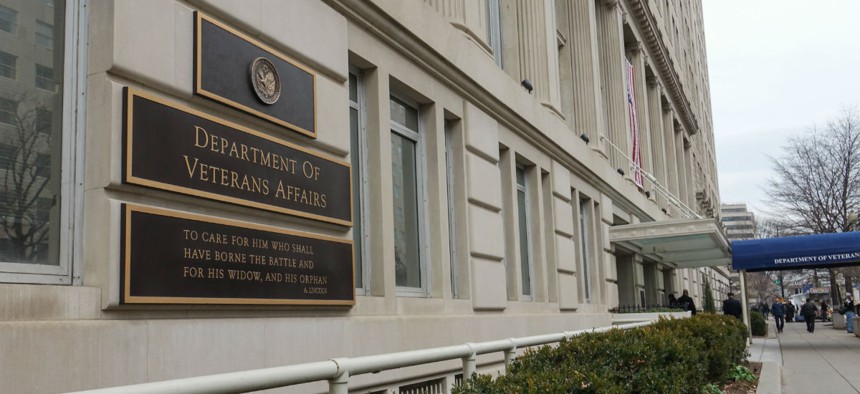
bakdc/Shutterstock.com
VA’s Interim Leadership Faces Legitimacy Questions
Whether former Veterans Affairs Secretary David Shulkin was fired or quit has big implications for the Trump administration—and for veterans.
Did he quit or was he fired? That’s the central question regarding the departure of former Veterans Affairs Secretary David Shulkin. The legitimacy of acting VA Secretary Robert Wilkie serving in that position could turn on the answer.
Under the 1998 Federal Vacancies Reform Act, if a Senate-confirmed official appointed by the president “dies, resigns, or is otherwise unable to perform the functions and duties of the office,” the president may temporarily appoint another Senate-confirmed official to serve in an acting capacity until a permanent replacement is nominated and confirmed by the Senate. That’s what President Trump did when he passed over Shulkin’s deputy for the position of acting secretary and named Wilkie, the undersecretary of Defense for personnel and readiness, to take the helm at VA in the interim, while his nominee to permanently lead VA, Navy Rear Admiral Ronney Jackson, awaits confirmation.
But the law does not say such an interim appointment can be made if the president fires the official that creates the vacancy in the first place.
“It doesn’t say. That’s the problem,” said Max Stier, president and CEO of the Partnership for Public Service. “The language is not specific as to firing, and it raises a doubt.”
“One could imagine a scenario in which Congress was concerned about a president getting rid of somebody and trying to insert somebody else who wasn’t in the line of ordinary succession,” Stier said. “I don’t know. I’m not making a legal interpretation here. I’m talking about a practical implication.” In practical terms, that means Wilkie’s decisions and actions could be challenged in court, creating significant uncertainty for the department and its path forward.
“That’s what’s at stake here,” Stier said. “A lot of decisions of consequence could be made by the acting official in this role.”
While the language of the law creates a potential opening for a legal challenge, the Justice Department's Office of Legal Counsel issued guidance after the bill was passed, noting that, "In floor debate, Senators said, by way of example, that an officer would be 'otherwise unable to perform the functions and duties of the office’ if he or she were fired, imprisoned, or sick."
The concern among some veterans service organizations is that administration officials want to push the department in a substantially new direction away from government-run health care. Shulkin’s deputy, Thomas Bowman, next in the line of succession, was widely considered a moderating force between those who want to privatize care and those who want to reform the current system.
Shulkin told multiple media outlets he was fired from the job, and in a March 28 New York Times op-ed, published just hours after he was ousted from the department, he warned:
“The department has become entangled in a brutal power struggle, with some political appointees choosing to promote their agendas instead of what’s best for veterans. These individuals, who seek to privatize veteran health care as an alternative to government-run VA care, unfortunately fail to engage in realistic plans regarding who will care for the more than 9 million veterans who rely on the department for life-sustaining care.”
But the White House maintains that Shulkin quit amid a brewing ethics scandal. In a three-page memo to veterans groups obtained by the Associated Press, Trump administration officials sought to discredit the former secretary by pointing out several “lies” he allegedly spread in the wake of a critical inspector general report that raised questions about his mixing of official and personal travel.
“This is not good, either for VA or for veterans,” Stier said. “We’ve lost another Cabinet secretary with a phenomenally important job.”
Eric Katz contributed to this story.
Image via bakdc/Shutterstock.com.







